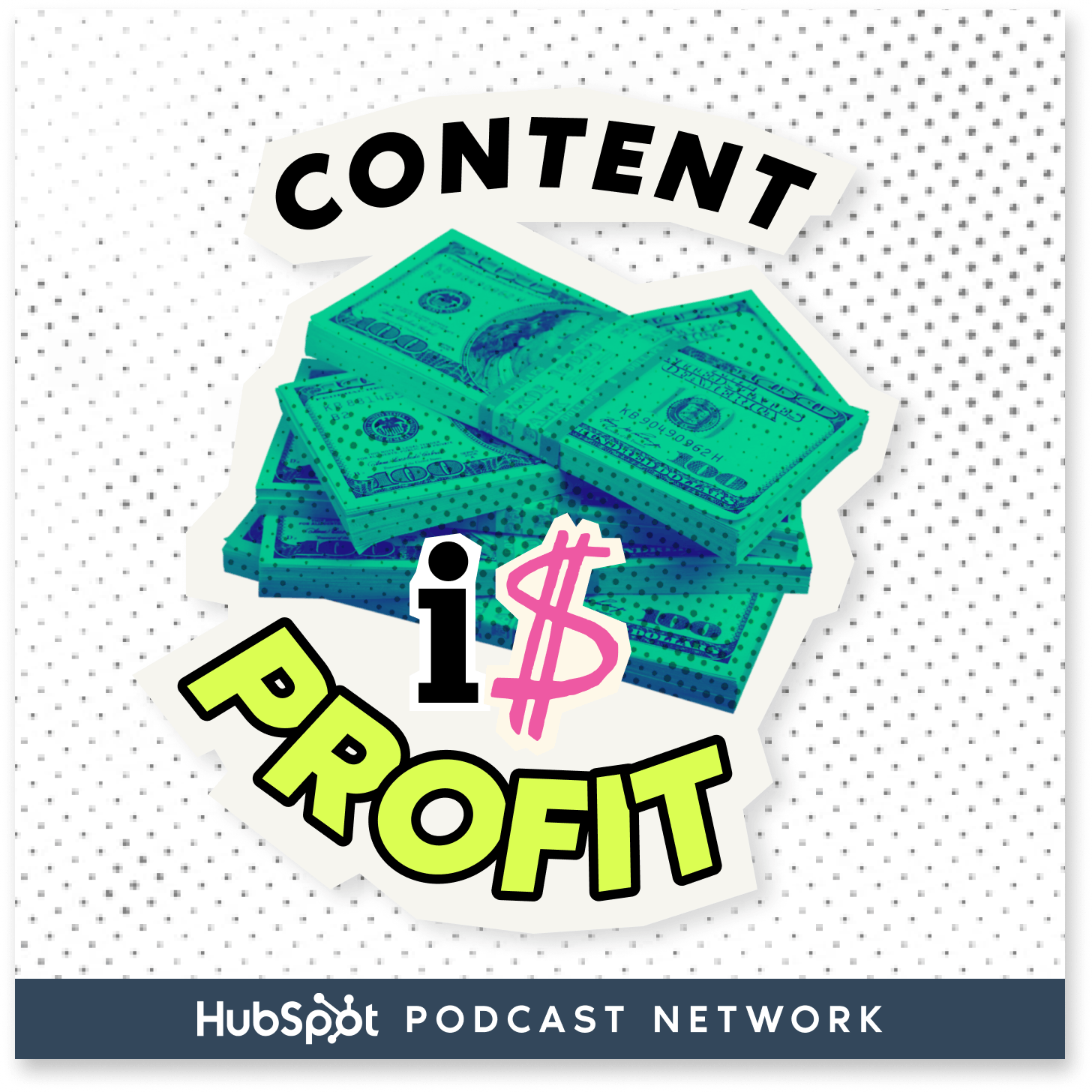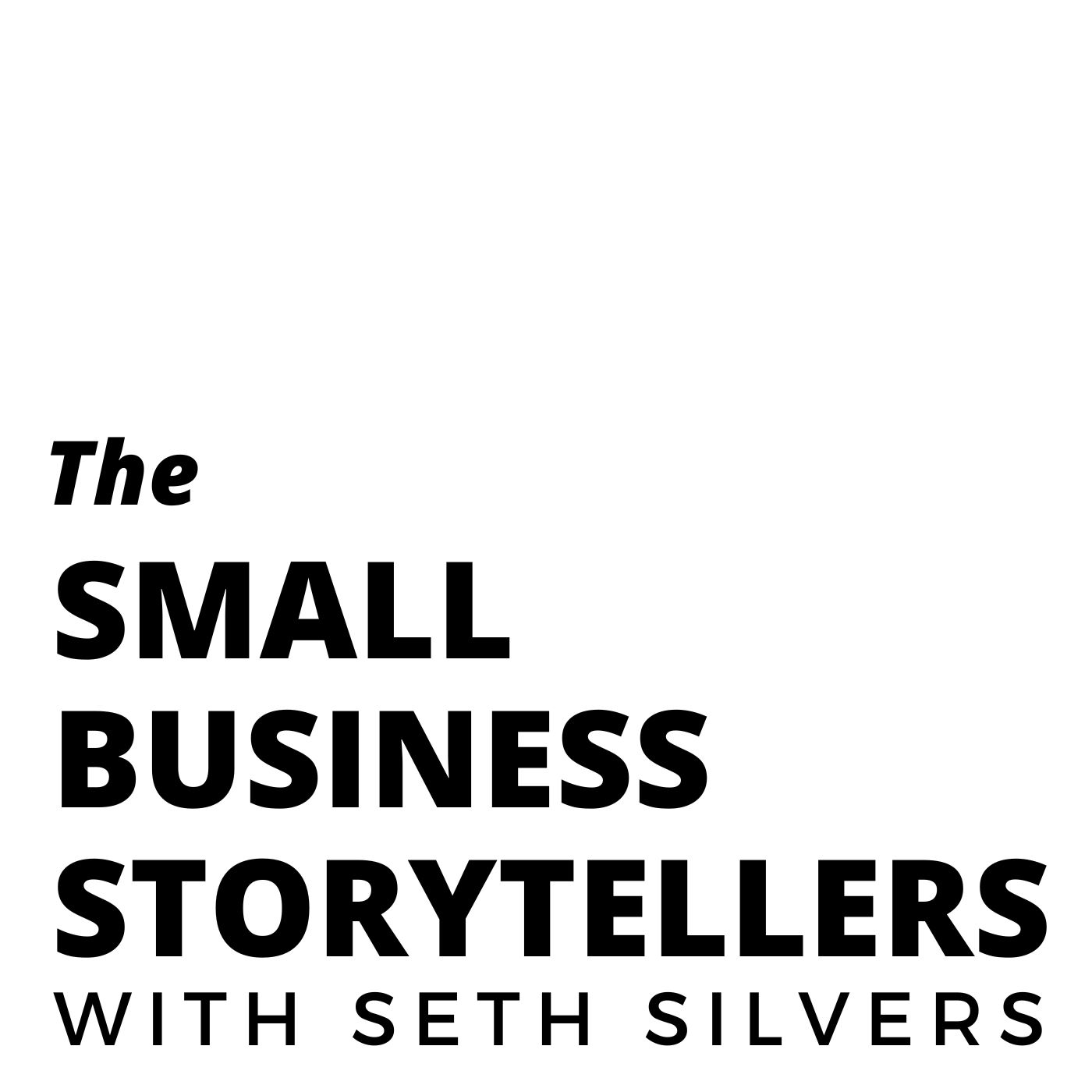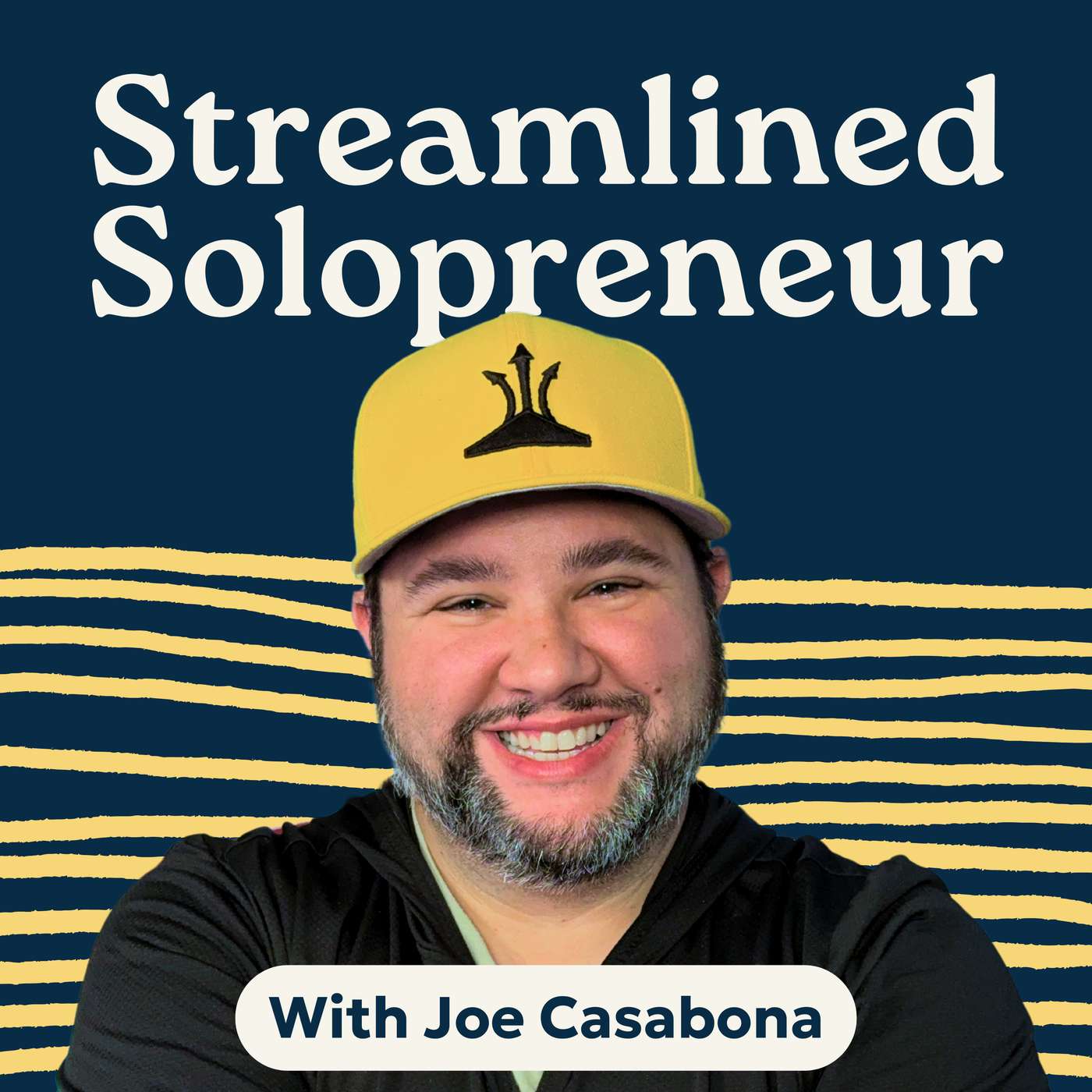
Podcasting Made Simple
Podcasting Made Simple is the premier podcast about podcasting! We’re here to help podcast guests and podcast hosts reach more listeners and grow their income so they can change more lives! Join Alex Sanfilippo and other podcasting industry experts as they share how you can level up on either side of the mic! (Show notes and resources: https://PodMatch.com/episodes)
Podcasting Made Simple
Grow Loyal Podcast Listeners Fast | Katherine Beck
Did you know that it takes just 6 seconds for a listener to decide if they want to be a loyal listener of your podcast? As a podcast host, your voice is your greatest asset! Sadly, most hosts don't know how to effectively use their voice to create rapport, authority, and connection with their audience. But, this doesn’t have to be the case! In this episode, Katherine Beck explains how you can leverage your voice to attract loyal listeners. Get ready to unlock the power of your voice to grow your podcast!
MORE FROM THIS EPISODE: HTTPS://PODMATCH.COM/EP/323
Chapters
00:00 The Power of First Impressions
02:55 Understanding the Impact of Your Voice
05:47 Authenticity, Authority, and Approachability in Podcasting
12:02 Creating Connection with Your Audience
Takeaways
It takes just six seconds for someone to decide if they will become a loyal listener.
Your voice has the power to ignite thoughts and feelings.
The microphone captures all nuances in your voice.
Authenticity, authority, and approachability are key to podcasting.
Listeners seek connection and familiarity with the host.
Your voice reflects your brand and should align with it.
Tone and delivery can influence perceived authority.
Creating a safe space for guests enhances the conversation.
Utilizing vocal tools can increase audience engagement.
Your voice is a symphony that amplifies your message.
MORE FROM THIS EPISODE: HTTPS://PODMATCH.COM/EP/323
📊 This month's Independent Podcasters Report is now available! To see podcasting industry insights that matter for indie podcast hosts and podcast guests, please visit https://PodMatch.com/Report!
You're listening to Podcasting Made Simple. Did you know it takes just six seconds for someone to decide if they will become a loyal lifetime listener to your podcast? That's because six seconds is all it takes for someone to decide if they know you, like you, trust you, and even want to buy from you. In fact, there was a study done by Princeton University where participants were asked to listen to a two-second recording of a person's voice, and they were able to accurately assess a person's likability, competence, and trustworthiness just based on the person's voice. You see, people are subconsciously forming an opinion about you and your podcast. That means the very first words that you speak have the power to attract or repel your listeners. When your audience decides to listen to your podcast, they are seeking something. It could be education. It could be entertainment. It could be for a laugh or to escape reality. In your podcast, all podcasts contain sounds. Now sounds in its purest form is a frequency. It is energy. And sounds and energy create movement. Sounds can evoke a feeling or a thought. And all of that gets delivered through your voice. Your voice is energy. And your voice has a power to ignite a thought or a feeling in your audience. Your voice has the power to take your audience on a journey. It has a power to get your audience to take an action like a call to action. And you have the ability to impact, to inspire, and to ignite a change. But often there is a disconnect when we speak. And when there is a disconnect, it doesn't matter what we say or what we do, if the listener does not connect, they will likely not come back for more. So today, I want to invite you to connect to your audience and show up and sound like your authentic self in just six seconds. So you might be thinking, well, why six seconds? Well, in 2016, YouTube introduced the six second video ad. And it should be no secret that with the popularity of short form video content, our attention spans are getting shorter and shorter. And while listeners to a podcast are generally there for a longer listening experience, they're entering your podcast with a shorter attention span. So because your listeners can be influenced by short form content, that means your listeners will decide pretty quickly if they like the sound of your podcast and the sound of your voice. Now I became fascinated with the six second ad and the first six seconds that we speak because I'm not just a podcaster, I'm also a voiceover artist. One day I was asked to be the voice of a big brand and I did a campaign of six second ads. And I remember thinking, how is that possible? How is it possible to take someone on a journey within just six seconds? But it is. And that got me thinking. If advertisers had tapped into the six-second phenomenon, podcasters could do the same too. See, in those first six seconds, the very first words that you speak, you have the power and the ability to attract lifetime loyal listeners to your show. But this is easier said than done, because there's this thing called a microphone that we all have for our podcasts, right? It's very powerful, especially when you're working with a high quality microphone that has enhanced response sensitivity. Here's the thing about a microphone. The microphone does not lie. The microphone picks up on all the nuances and subtleties in your voice and the delivery of your words. And while the microphone is powerful, what's even more powerful is your voice. And that's because your voice is the communication of your heart. And yet, It is often the most underutilized and most underappreciated tool in our podcast toolkit. And chances are, if you aren't noticing the downloads, there might be a disconnect in how you're delivering your podcast. If it's not landing, if it's not connecting, your audience picks up on it, all of it. You see, your voice does not lie. It tells me instantly who you are, how you're feeling, what you are thinking and if you are authentically showing up. And if there is a disconnect, we can hear it in your voice. And that's when your voice may start working against you. And well, it can come out in a variety of different ways. The ums, the ahs, the filler words, even a quiver in your voice. Maybe it's speaking really fast because you're worried about taking up too much time. All of that comes out in our voice. And all of that comes from an inner dialogue, an inner dialogue that is orchestrating how the outer dialogue is conveyed. See, when we communicate, it actually goes three layers deep. There's the external dialogue. Those are the words that you speak in your podcast. But then there's an inner dialogue, and those are your internal thoughts and feelings. And then if we dive even deeper, there is an unconscious dialogue. Those are your beliefs that are running in the background. And until we can identify that belief or that old story we've been telling ourselves about our voice and how we communicate, we won't be able to shift that internal dialogue and then that internal dialogue will continue to orchestrate how the outer dialogue is conveyed. It's all connected. So it starts with those thoughts and those feelings that travel from your brain through your body, out through those sound waves, through your voice, and into the microphone and out into your listener's ear. So if you're happy, your listeners will hear happy. But if you're feeling nervous, well, Your listener hears that too. And when you feel something, that feeling evokes a feeling in your audience. So for example, let's say you're interviewing someone on your podcast and you can hear them dialing it in. You know, have you ever been in that situation where you're interviewing someone and they're just dialing it in, delivering that same old talk they've probably said on hundreds of other podcasts? It's boring. Well, your listener can hear that too. So what do we want to hear from you or your guest in those first six seconds? What's going to attract more lifetime loyal listeners to your podcast? Well, think about how do you want to sound when you speak? Think about how do you want people to perceive you and your podcast? Generally, there are three things your audience is actually seeking to hear from you. And chances are, you want to sound like your authentic self, right? So that's one of them, authenticity. What is your version of authenticity sound like though? Because your authenticity and my authenticity will sound completely different. Next is authority. Chances are you started a podcast because You want it to sound credible, right? That credibility goes along with authority. So we want to make sure that you sound like the authority as well. And approachability. That you sound relatable, likable, like someone that wants to listen to your voice and listens to you week after week. So let's start building the sound of your brand. Because in case you didn't know, You are a brand. So think about how does your voice reflect your brand? What does the voice of your brand sound like? And does the voice, does your voice, specifically how you speak now, does it match your brand? Now, ask yourself, can we hear authenticity, authority, and appr- approachability in your voice. So let's break all that down. Let's start with authority. Podcast is a fantastic way to be known as an authority or an expert. In fact, chances are that may be why a listener is listening to you and your podcast. Now, as an easy way to sound like an authority, it comes out through the tone in your voice. When you start to inflect downwards at the ends of your thoughts or your statements, this is where we start to perceive you a little bit more as an authority. For example, if I were to say, welcome to my podcast or welcome to my podcast. The first, well, the first sounds kind of like a question, like I'm not sure, am I welcoming you to the podcast? Whereas the second sounds more certain. more dialed in, more direct, more like the authority. So your tone in your delivery can shift our perception of your level of authority. Next, let's see how you do with authenticity. So when we talk about authenticity, how can we hear what makes you uniquely you? For example, when I speak, My voice brand is warm and friendly, fun and quirky, and intense. What about you? How do you want to be known? How do you want to be heard? And what makes you uniquely you? Now think about, what is the intention you want your audience to hear when they listen to you and your podcast? I'll give you an example. For me, it's these three things. To inspire, to entertain and to educate. So what's your intention? And can your intention be heard? And then finally, approachability. That level of likeness or relatability. Does your audience feel like they know you? That there's a familiarity there? When they listen to your podcast, they wanna feel like they're in the room with you. Like they're just having a one-on-one conversation with you. Here's the thing. People are seeking connection. And even if you're not talking to them, they want to feel like you're talking to them. I call this the many-to-one method. You see, you're talking to many, but the listener feels like you are talking just to them. So how can we do this? Well, first step is we get really clear with who you're speaking to. Not general, but specific. Actually speak to someone and have someone specific in mind that you can think about or visualize that you're talking to when you record those solo podcast episodes. It will allow the listener to feel like you're just talking to them. And if it's an interview, well, Remove that formality and have a real honest conversation. Those first few seconds also set up the relationship between you and the person that you are interviewing. think about what sort of experience do you want to create for your guest? So create a safe space and actively listen and respond to what they say. And remember. that your vocal toolkit has so many incredible things to attract your listeners to come back for more. But ask yourself this, are you podcasting on just one note? Remember, what you say on the podcast is important, but it's also how you say it that creates the impact and captures the attention of your audience that keeps them coming back for more. So ask yourself, what tools are you using in your vocal toolkit when you podcast? Have you explored the melody in your voice, the pace in which you speak, a pause to let your statement land? Are you truly connecting to your audience, letting your authority shine through, and allowing your authentic voice to be heard? Remember that your voice is a symphony and your podcast is the amplifier of your message. So utilize your voice to its fullest potential because most people aren't. And I guarantee it will set you apart. It will increase your downloads and attract more loyal lifetime listeners to your show. So let your voice be heard. For more episodes, please visit podmatch.com forward slash episodes. Thank you so much for listening. Hey, Alex here. I wanted to give you a gift as a way of saying thank you for staying around till the end of this episode. I put together a list of five things that you can read in less than five minutes that will help you level up as a podcast host, guest, or agency. To see the five things with no email address required, please visit podmatch.com forward slash free. Thanks again for listening. I hope these five things serve you well.











